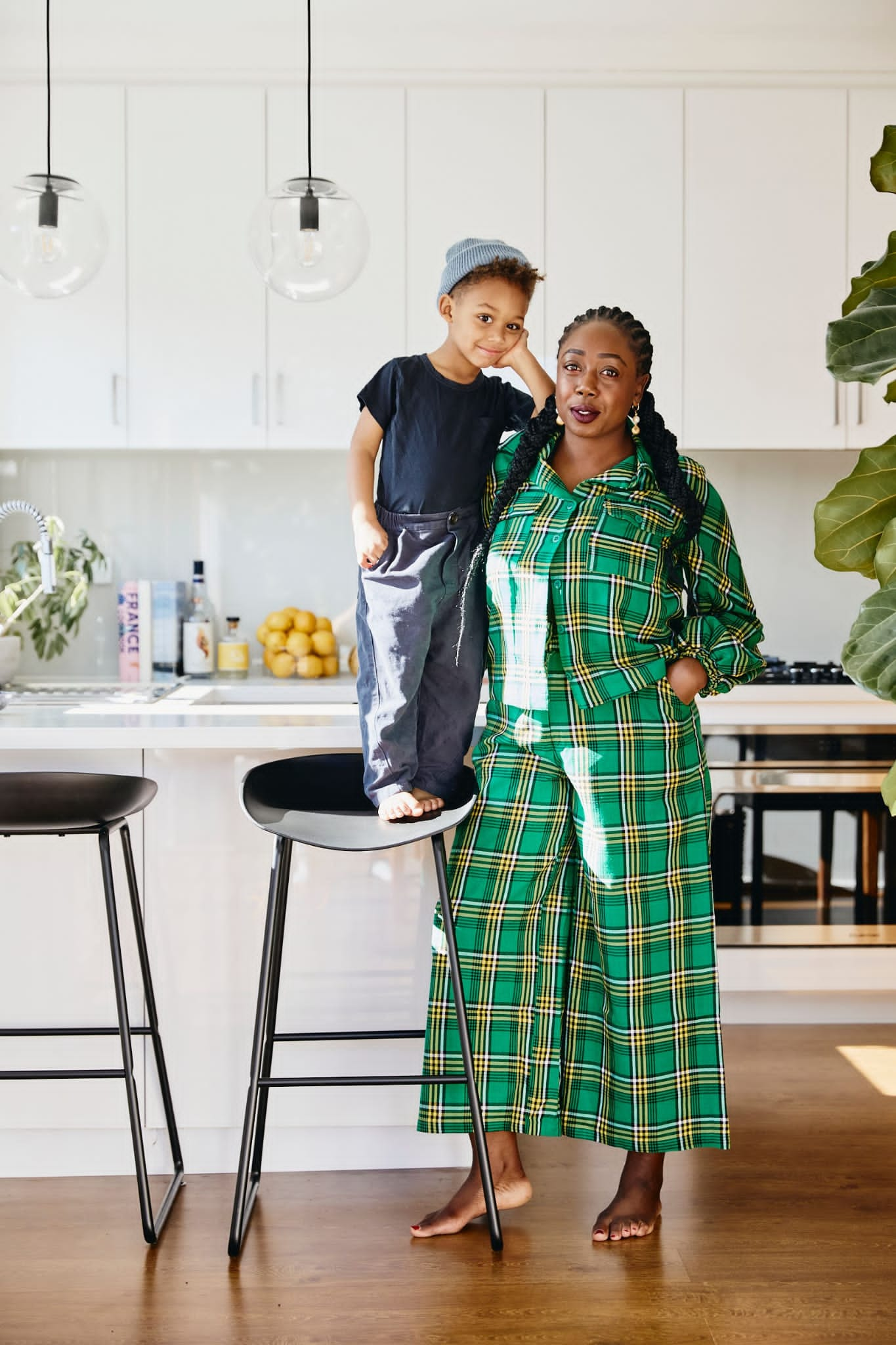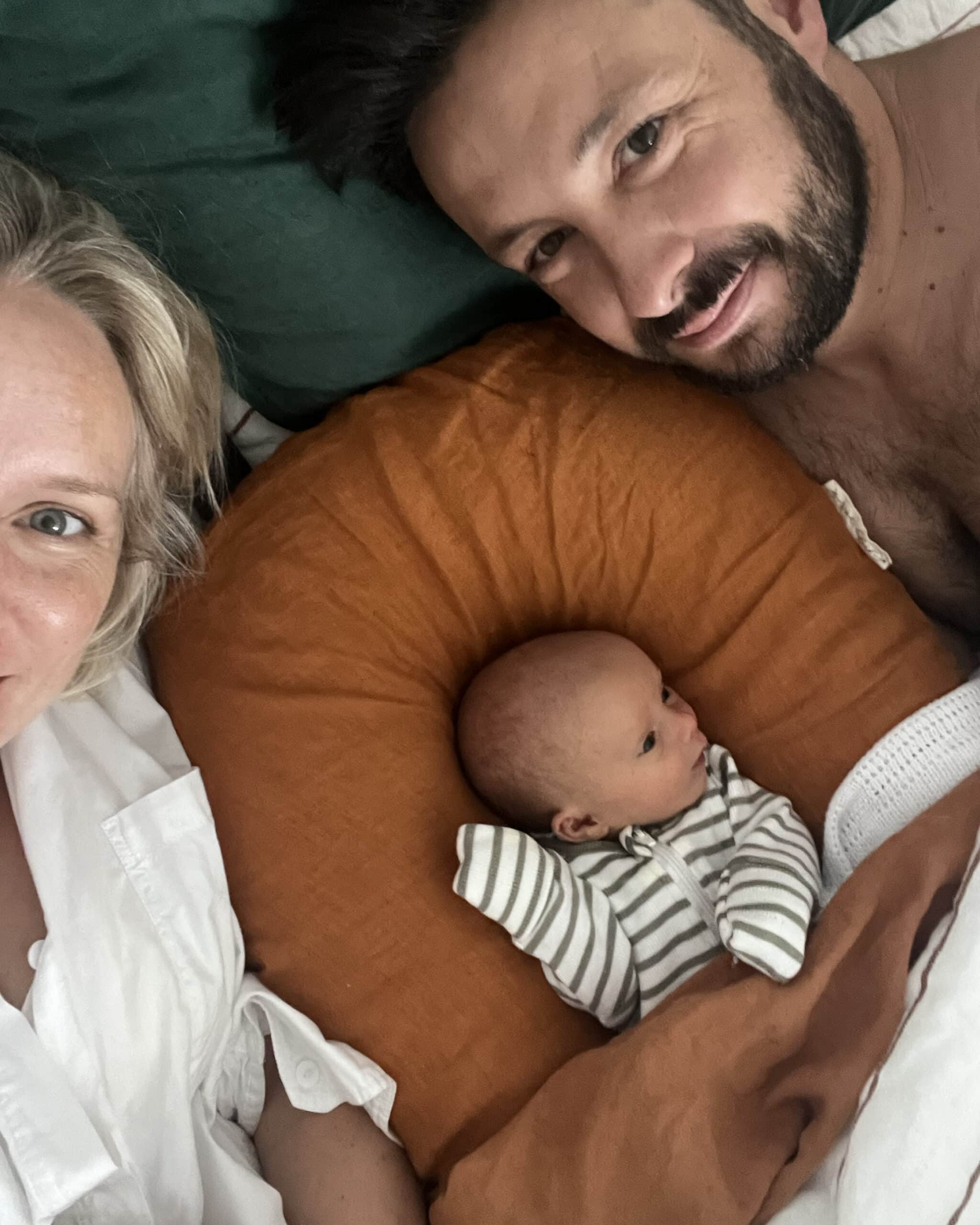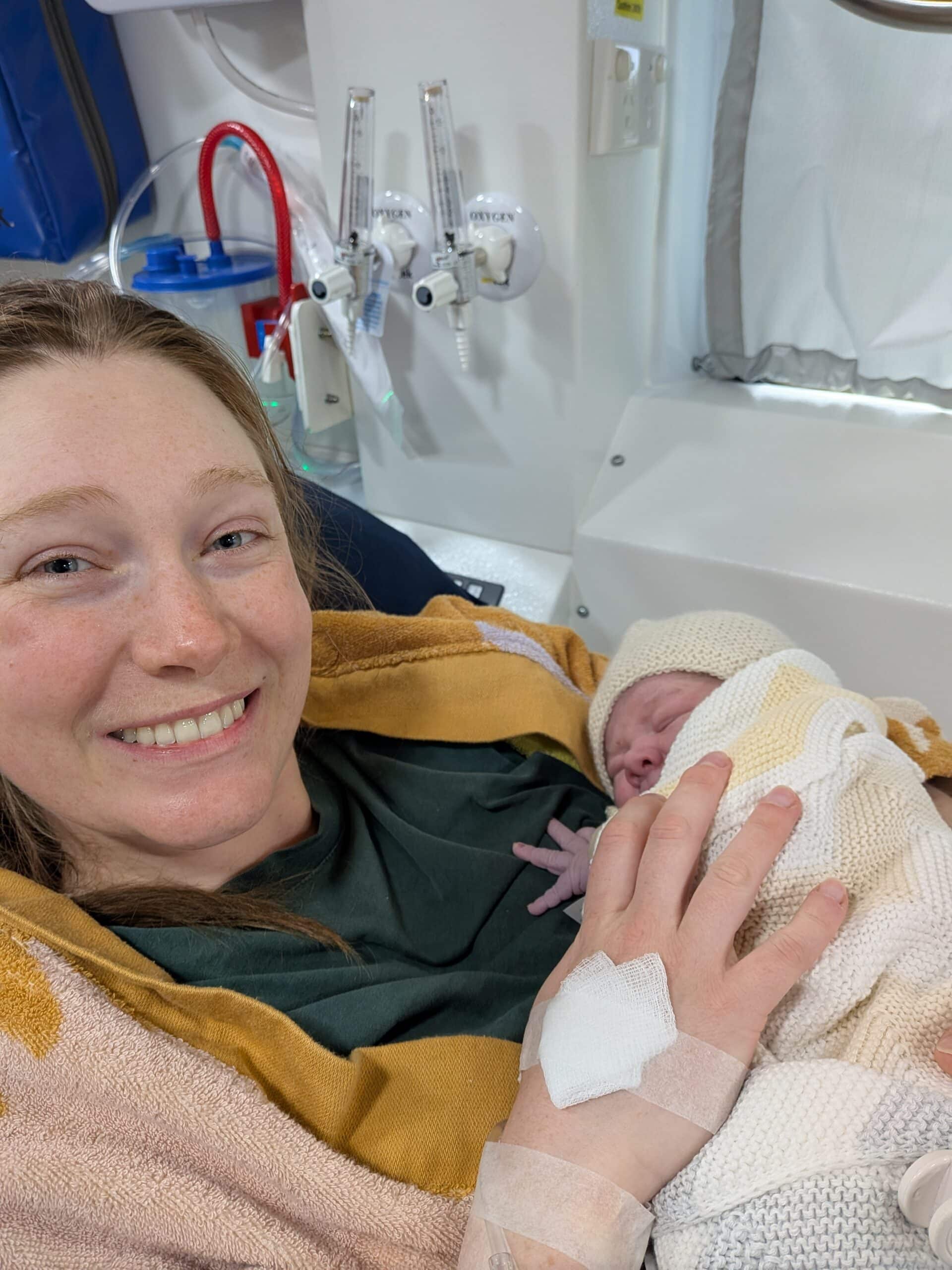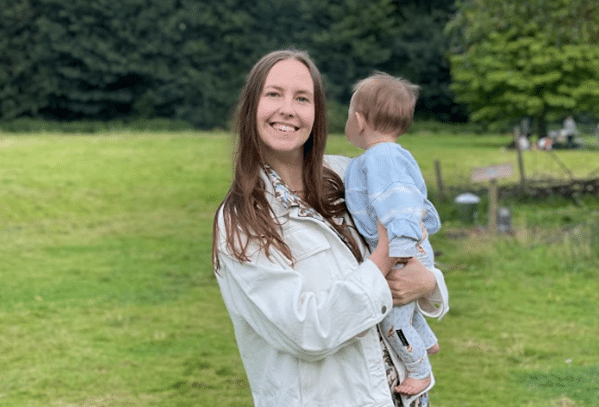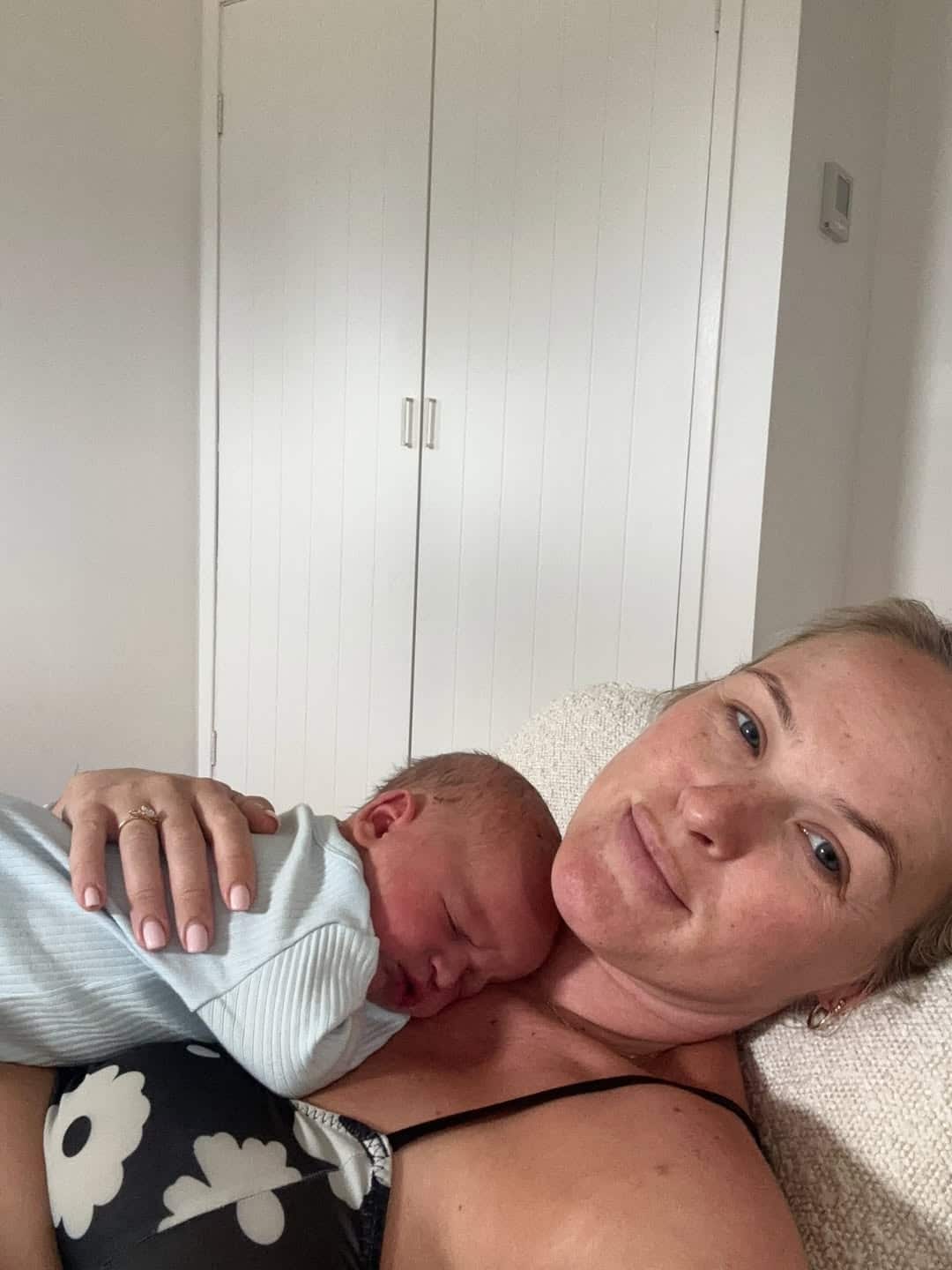Podcasts Sasha | Postpartum – PND, medication, returning to work, race, childcare
EPISODE 456
Sasha | Postpartum – PND, medication, returning to work, race, childcare
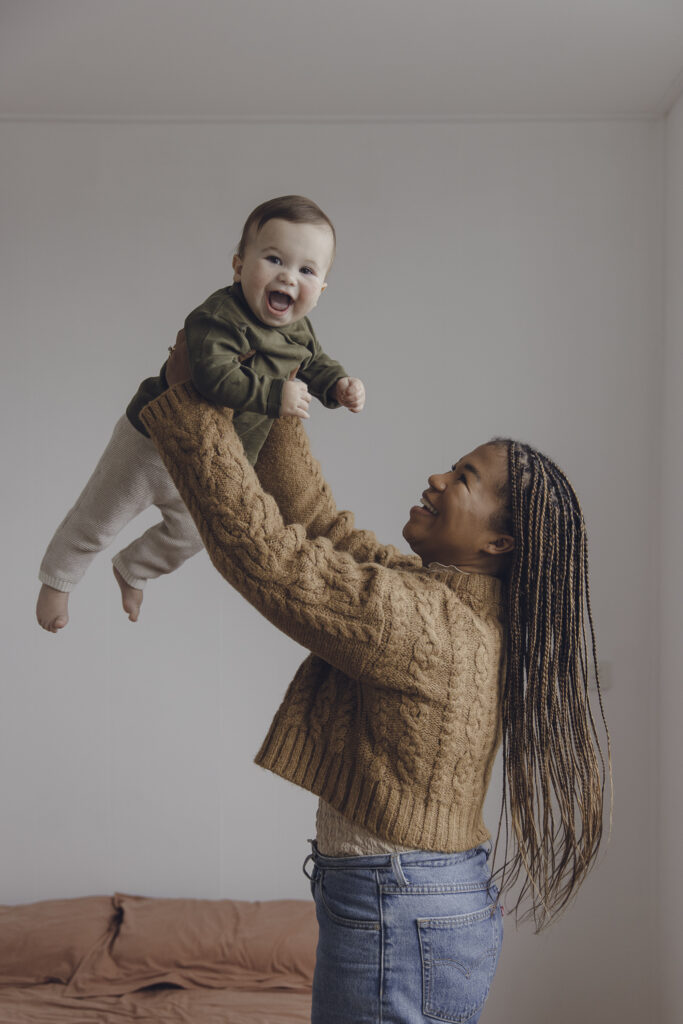
“We really cocooned in the early weeks of postpartum. Having a newborn gave us the permission to really cut out anyone and everyone and focus on ourselves; it was us going inwards and I didn’t feel selfish for that. I was on an absolute high from birth – that classic oxytocin high – and I was beaming when I woke up every morning, even if we’d had a bad night. I remember saying to my husband, Jem, I can’t wait for baby number two. I realise that is wacky but that’s where I was at.
“We were really intentional with postpartum; I’d done a breastfeeding course, the freezer was full of food and we had so many of our friends and family drop food on our doorstep. We’d done all the prep but it was still a huge learning curve but on the whole it was really positive for us.
“I’d worked as a sleep scientist in the past and worked as a research assistant in infant sleep studies so I’d been around babies and watched them sleep which meant I did night shifts. So coming into postpartum, I really thought I’d be fine but sleep deprivation is a completely different beast. It got to a point where I lost the initial high, the adrenaline dropped off and I crashed. It wasn’t immediate, more of a trickle. There were days when I would wake and think: ‘here we go for another day’ so I wasn’t all doom and gloom but the shine started to fade. It got to a point where Silvester would be crying – that inconsolable baby crying and it really gets down to your bones – and I remember blanking and looking at Silv and not having anything to give. I felt burdened by a heavy fog, almost dread-like, like I was almost numb. It happened two more times – overwhelmed to the point of being paralysed – and felt like I just couldn’t do it.
I did try to make excuses – I’d had a hard night, Silvester was crying a lot – but Jem telling me that I needed help really encouraged me to book in with the GP. I’m so glad that I did and I wished I’d done it sooner. She gave me a few options and I sat with them for a week and eventually decided to go on medication. I was sad and tired and I wished I’d reached out for help sooner. Two weeks after being on the medication I felt so much better; I had a better baseline of mood, I wasn’t as irritable and that change has continued to improve for me.
“We didn’t go down a formal sleep training path but I attended a workshop run by our local council and that gave us some ideas. We considered some of them too harsh for Silvester considering he was only six months old but we did implement some of the techniques. The issue that we had, and I think it fed into my anxiety during postpartum, was that everytime we had a good run of sleep training we could see things changing; he would have to rely on us so much to self settle, he’d get sick. And of course he needed soothing and cuddling overnight so we’d be back to the beginning.
“Things have changed as he’s matured and we’re okay with that. I still breastfeed through the night and Jem will take him first thing in the morning so I get a sleep in and that’s been a good balance for us from the beginning.
“My mum is Ukrainian and my dad is Ugandan so they both have interesting backgrounds and upbringings. I’m a mixture of both of them; I’m a caramel combination. My partner Jeremy is very fair so when we were pregnant we were very excited to see what mixture Silvester would be. He’s fair and his hair is now getting a slight curl. In the early months he looked so much like Jem but resoundingly he’s now my twin; he’s got my eyes, lips, cheeks and expressions. I love hearing people say: ‘Silv is your twin!’ But what’s been interesting, and for me a bit of a journey back to my childhood, is that often strangers will make comments or observations about us. Initially I could brush it off but it’s been hard and it stings because what they’re seeing is skin colour; I’m black and Silv is white even though we do have very similar features. When I was a child similar things would happen; I was often asked if I was adopted and asked who my real mum was. It’s been an interesting layer of my postpartum experience, and I feel like I’m still processing it and Jem and I are talking about how we’ll navigate it moving forward.
“Conflict is a good word for it; growing up I wasn’t white enough to be white like my Ukrainian mother but I wasn’t dark enough to be completely black. I held the space in between, trying to work out where I fit and this is a common experience for mixed race kids. For Jem and I, we want Silvester to feel like every part of him is celebrated but I don’t want him to have conflict, I want him to be very proud. I was disappointed that he wasn’t darker at birth and I still find myself counting his curls as they come, thinking that he’ll be more like me. I think that’s family; you want to look like each other, it’s one of the elements that tie you together.
“I paused my phd in pregnancy and had spoken to other women who had done their own phd while raising babies. I got the impression that it was realistic to read papers while on maternity leave and do a bit of writing or even analyse a bit of data…for me, that was not the experience at all. Hormonal shifts, broken sleep, the utter crazy love and energy that I only wanted to pour into Silvester. I didn’t have the drive or motivation but that said, I was open to working on it during maternity leave.
“The biggest gift Silvester has given me is the chance to slow down, the chance to let go and be still and quiet. He’s forced a lot of accidental mindfulness because we are so slow; there is joy in play, joy in looking at a stone on the path, and it’s been the best. It’s a new kind of joy.”
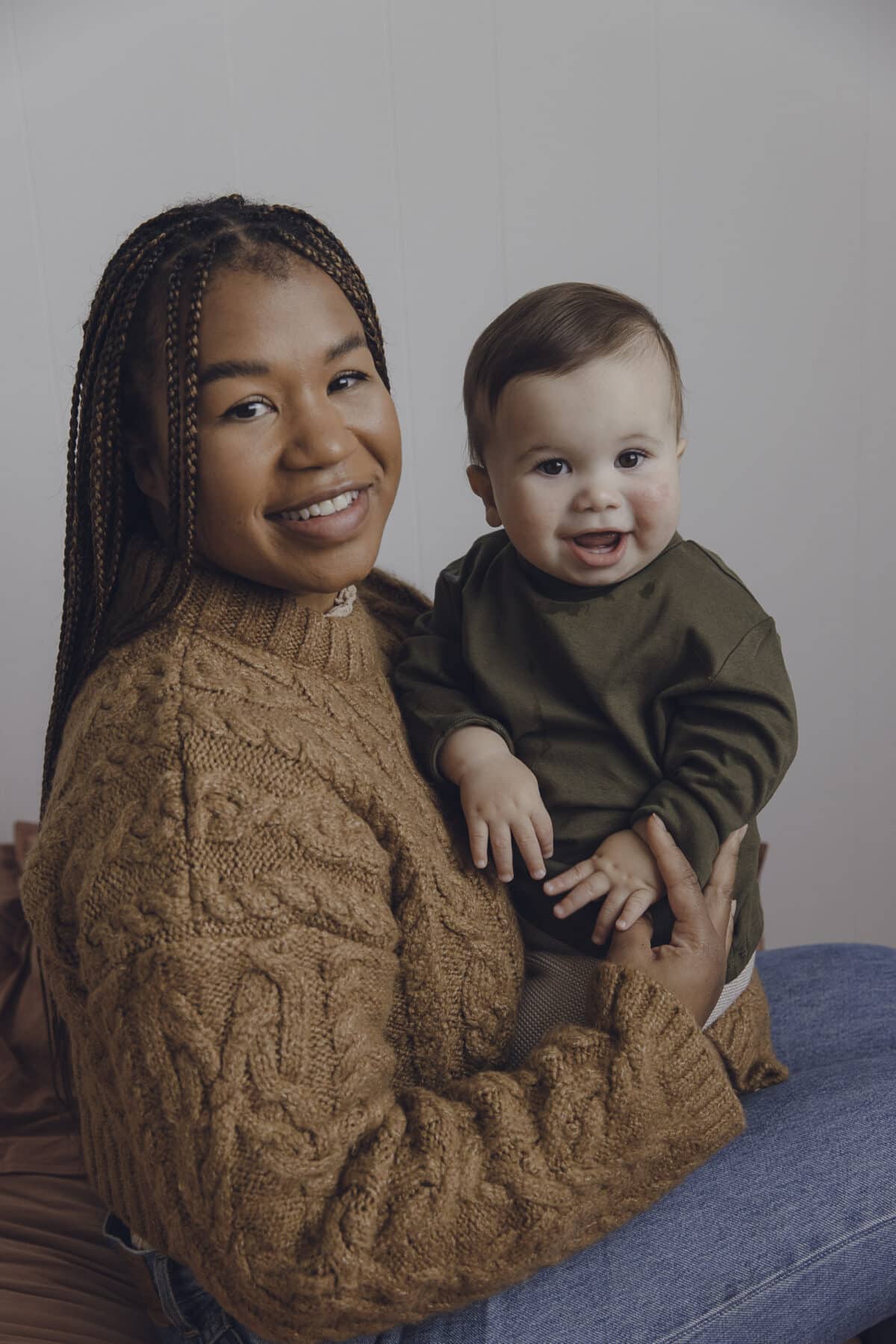
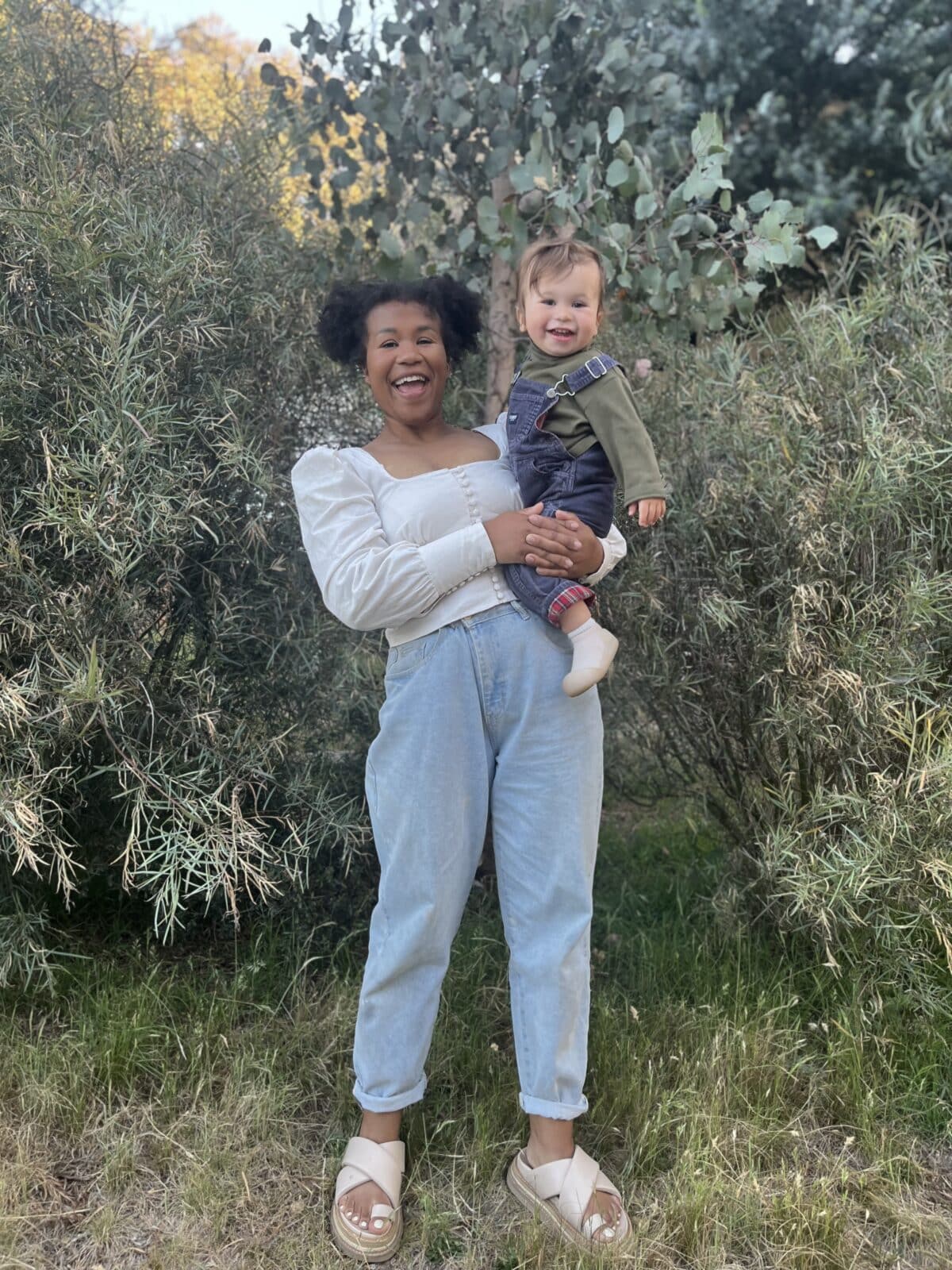
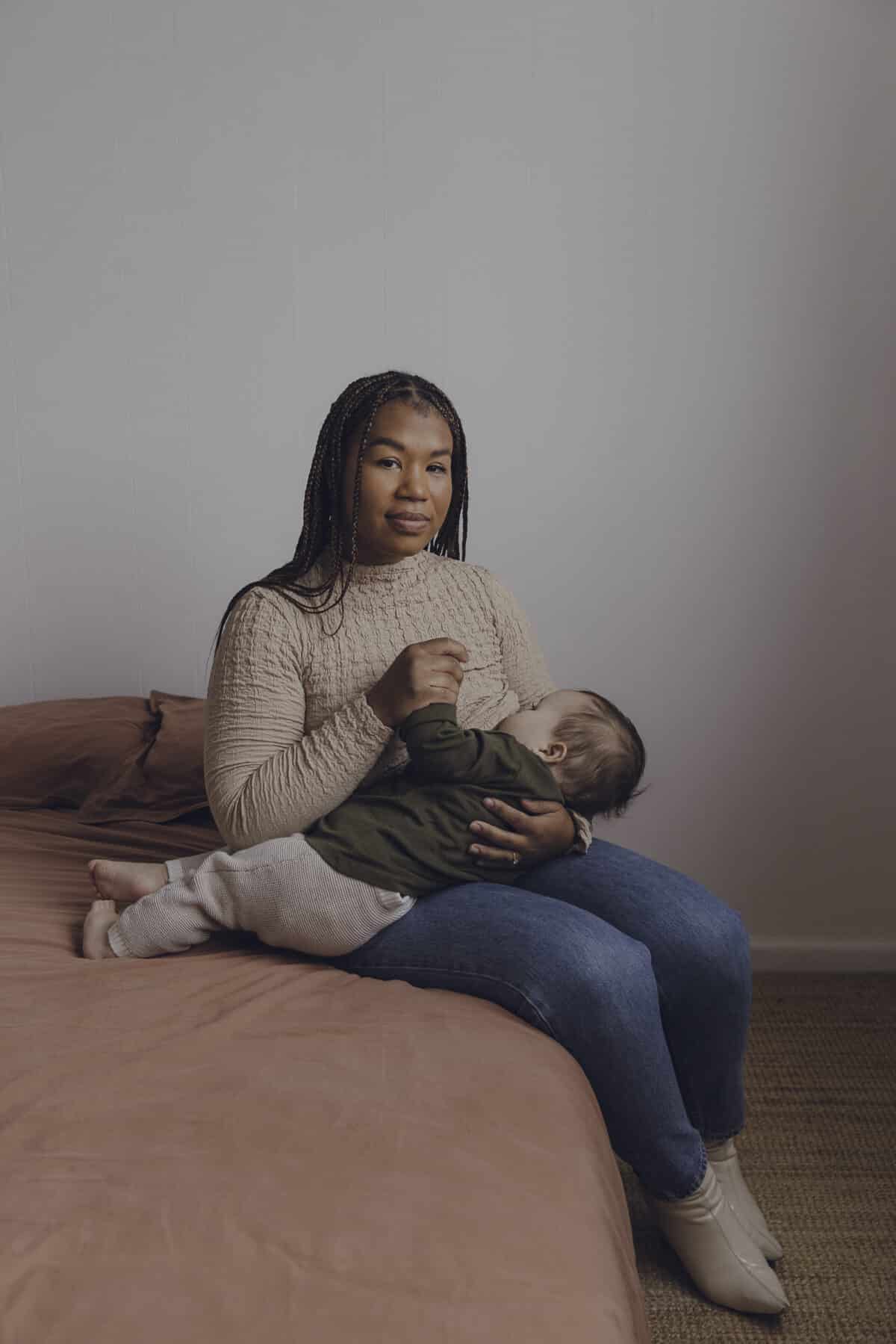
Topics Discussed
Breastfeeding, childcare, medication, One baby, planned postpartum, PND, race, returning to work
Episode Sponsor
If you’re considering The Birth Class, now is the time to buy. It just got bigger and better thanks to new content that enhances your birth education and preparation experience, including:
- A cheat sheet for your birth partner. This simple outline takes your support person through early and active labour – what to expect, how to support and what to say when challenges arise
- Images of birth positions – the ideal addition for visual learners
- 3 meditations to release tension, foster trust and navigate a change of plans
- An illustrated guide to antenatal expressing – everything you need to know about collecting and storing colostrum
GET 20% OFF FOR A LIMITED TIME WITH THE CODE: ABS2024
Categories
Related Products
-
Birth Meditations
$49.00Narrated by Sophie Walker, these soothing and informative meditations help you feel supported and confident around birth.
Join the conversation
Sign up to get the latest updates, freebies, podcast releases straight into your inbox
@AustralianBirthStories
Follow along with us
@AustralianBirthStories
Follow along with us
@AustralianBirthStories
Follow along with us
@AustralianBirthStories
Follow along with us
@AustralianBirthStories
Follow along with us
@AustralianBirthStories
Follow along with us
@AustralianBirthStories
Follow along with us
@AustralianBirthStories
Follow along with us
@AustralianBirthStories
Follow along with us
@AustralianBirthStories
Follow along with us
@AustralianBirthStories
Follow along with us
@AustralianBirthStories
Follow along with us

